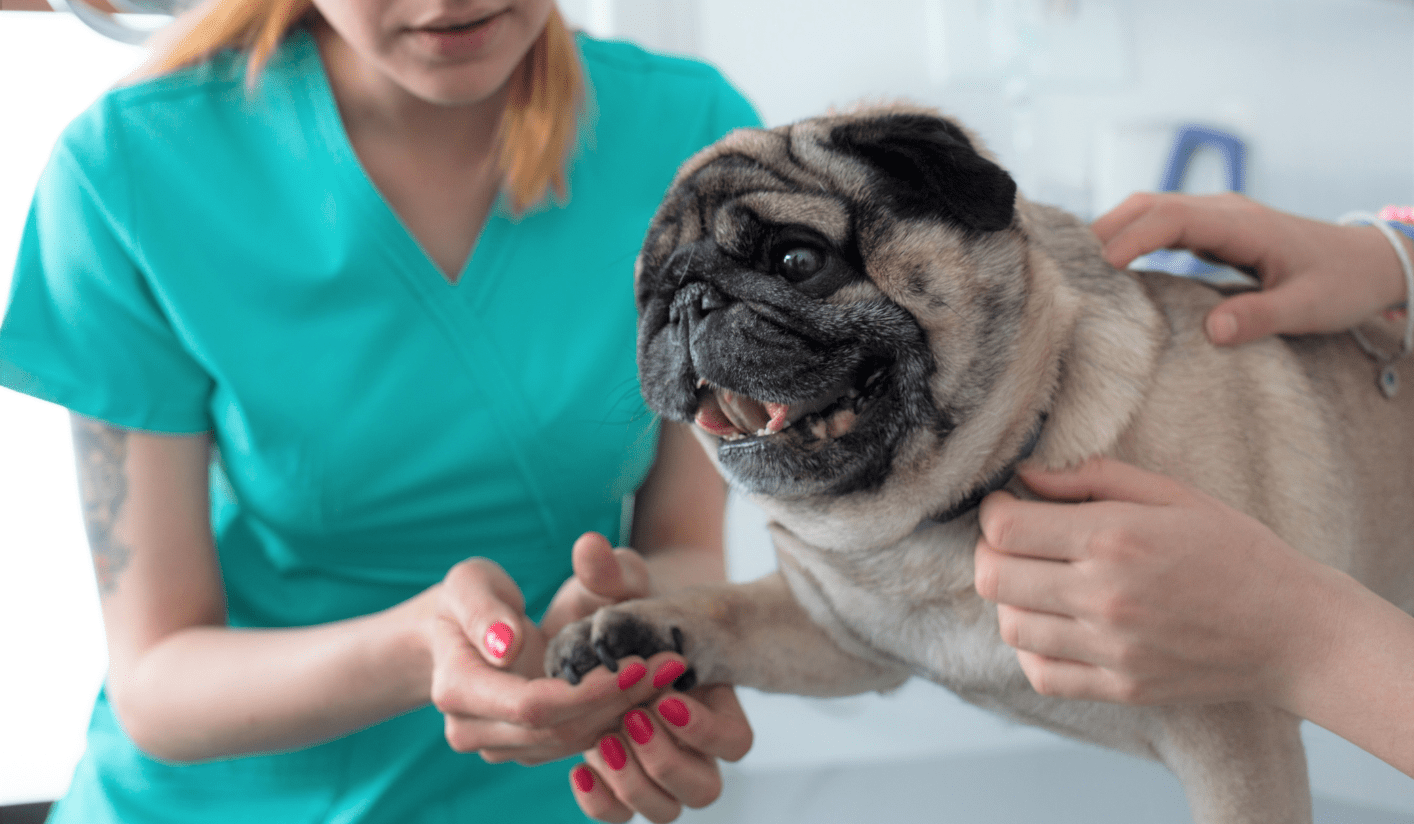Pugs are adorable and intelligent and are a sweet-nature dog breed. No doubt, you will continuously laugh around them because of their amazing personalities. Unfortunately, Pugs are prone to some health problems. Although these health issues don’t make them less lovable, you should be aware of them being a pet owner. The sooner you identify these problems, the better it is.
Do you want to know the common illnesses in Pugs and how you can prevent and cure them? If yes, this guideline is perfect for you. So, let’s start.
Hemivertebrae
Spinal problems like Hemivertebrae are common in Pugs because of their screw-tail. Abnormal-shaped vertebrae cause pressure on the spinal cord resulting in pain. You might have noticed problems with your pet’s back legs.
Symptoms
The symptoms of Hemivertebrae in Pugs include:
- Spinal deformity
- Back pain
- Mobility issues
- Difficulty controlling bowel or bladder
- Loss of sensation in certain areas
Cure and Prevention
Physical therapy, weight management, and regular veterinary check-ups can help manage this condition in Pugs. Drugs and surgery can correct the abnormal vertebrae in this dog breed.
Allergies
Pugs are sensitive to allergies, mainly skin conditions. If your dog constantly rubs, scratches, or licks his skin, it’s better to take your pet to a vet for diagnosis.
Symptoms
Your furry friend might show the following symptoms in the case of allergies:
- Itching or scratching
- Red, inflamed skin
- Chronic ear infections
Cure and Prevention
A balanced diet, regular grooming, and skin care can help prevent conditions like allergies in Pugs. Besides, medications like corticosteroids and antihistamines effectively treat Pugs’ allergies.
Brachycephalic Airway Obstruction Syndrome (BAOS)
Brachycephalic airway obstruction syndrome (BAOS) is common in dogs having reduced skull length. This condition occurs because of excessive soft tissue in the airways, obstructing airflow. Consequently, depending on his body requirement, your pet will have a tough time breathing air.
Symptoms
Following are the symptoms of Brachycephalic Airway Obstruction Syndrome in a Pug dog breed:
- Respiratory distress
- Noisy breathing
- Blue gums because of low oxygen levels
- Panting
- Difficulty breathing
Cure and Prevention
Maintaining a healthy weight, avoiding heavy exercise, and giving plenty of fresh water can help reduce the impact of this condition. Surgery might be required to live a happy, normal life in rare cases.
Eye Problems
Unfortunately, Pugs are prone to eye problems as they have bulging eyes. Because of their large eyes, these dogs can damage their eyes by bumping into obstacles.
Symptoms
Here are the symptoms of eye problems in Pugs:
- Bumping into objects
- Discolored eye discharge
- Weeping eyes
- Pain
- Irritation
- Unusual appearances around the eyes
- Discolored spots on the eye
Cure and Prevention
In the case of eye infections, call your vet immediately. Regular veterinary check-ups, maintaining eye hygiene, preventing eye trauma, and proper nutrition can help with eye infections.
Bone and Joint Problems
Because of Pugs’ small legs that support their sturdy body, their unique musculoskeletal structure is vulnerable to joint and bone issues. Luxating Patella is a condition in which knees become dislocated. It can occur because of hereditary malformation or due to injury.
Symptoms
The symptoms of these conditions in Pugs are:
- Difficulty in getting up and down
- Favoring one leg
- Jumping
- Hopping
Cure and Prevention
This condition can occur because of excessive body weight, so ensure to give your pet a well-balanced diet. Also, you should avoid games that include your pet jumping from or onto high surfaces to reduce the risk of joint injury. In addition, medications, surgery, and joint supplements are effective in treating these problems in Pugs.
Final Words
Pugs are lovely canines that give you cuddles and fun playtime. But unfortunately, they suffer from common illnesses like eye infections, Hemivertebrae, eye infections, etc. If you are a Pug enthusiast, don’t hesitate to bring this dog breed to your home. But being a caring pet owner, it’s better to keep an eye out for any unusual symptoms.



